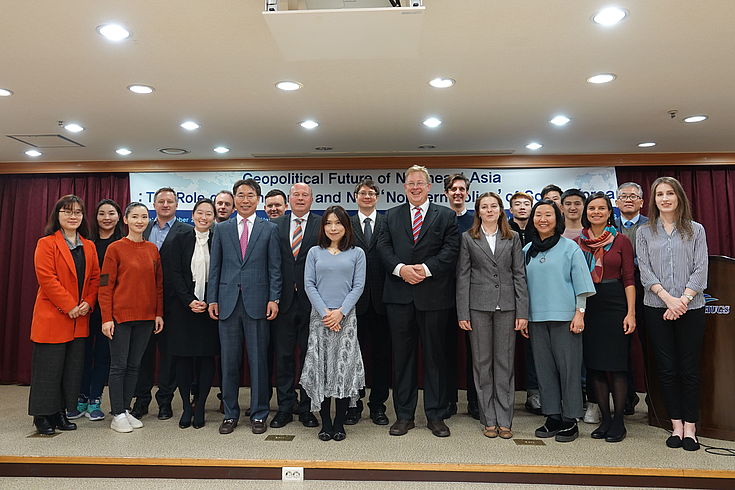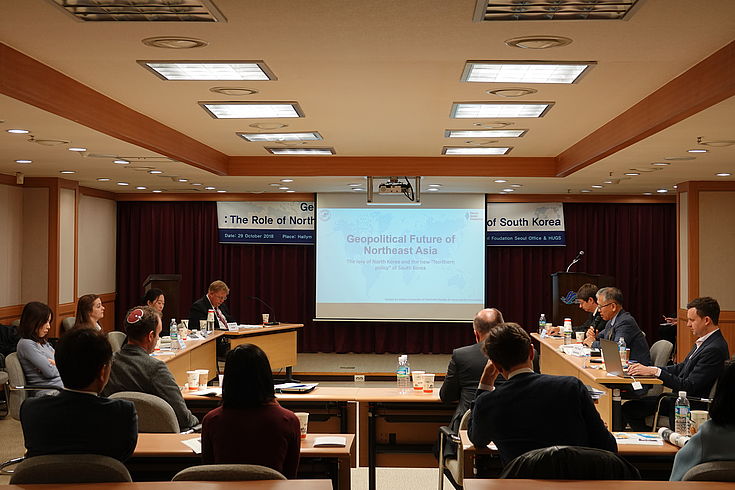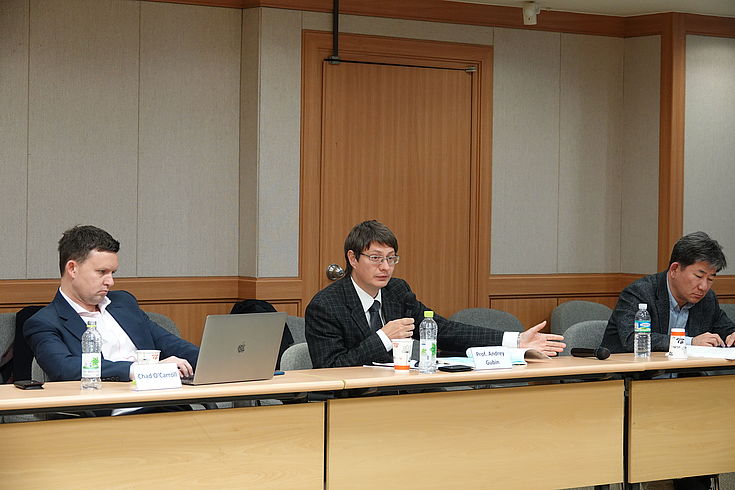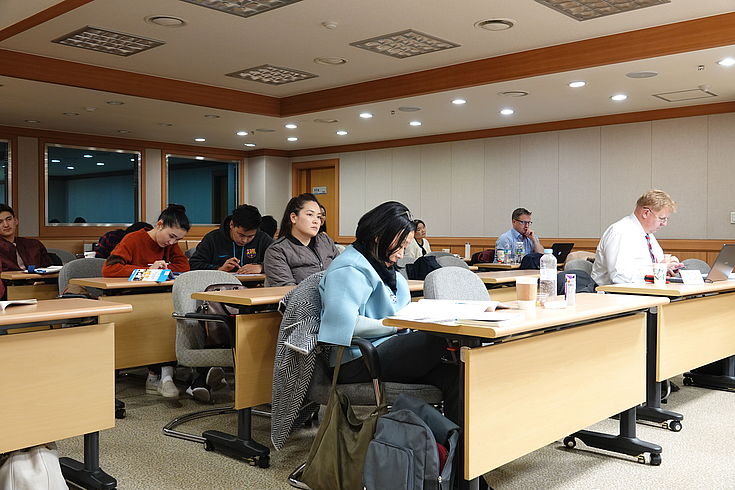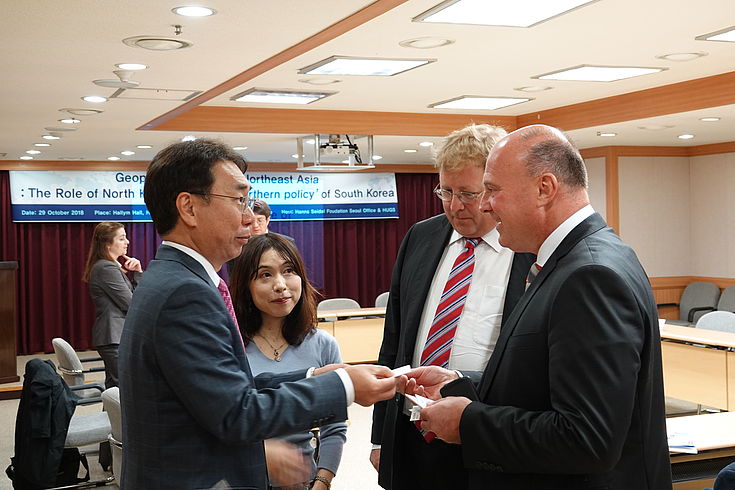International Conference
The Geopolitical Future of Northeast Asia?
Group photo
HSS
From the beginning of this year, many changes have occurred in the geopolitical situation in Northeast Asia. South Korea under the Moon Jae-In government proposed a new Northern policy to connect closer to Russia and also relations to Japan until now proceed relatively smooth. North Korea has the chance to become closer again to all actors in the region after its gradual isolation brought about by nuclear policy and subsequent rounds of sanctions. However, the stances of other involved countries and actors, in particular China, Russia, Japan and the US, and how they will affect the development of the political situation in the region, is not yet very clear. In the light of this, on October 29, 2018, the Hallym University of Graduate Studies (HUGS) and the Hanns Seidel Foundation held a conference which gave international experts as well as interested listeners a chance to discuss their views on the current political situation and possible future scenarios.
View on the panel
HSS
The definite changes that we have seen in the politics on the Korean peninsula and its neighbouring countries will probably have significant impacts on the region’s future. Therefore, it is important to openly discuss these issues and try to find a solution together through dialogue, which is something that both Prof. Youn Ik Joong (HUGS) and Dr. Bernhard Seliger (HSF) emphasized in their welcoming speeches. “There are many players in the geopolitical theme in Northeast Asia, and only together can they solve the political riddle of the region” - with these words from Hartmut Koschyk, founder of the One Korea Foundation and former German parliament member, the conference was opened.
Chad O'Carroll (NK News), Prof. Andrey Gubin (Far Eastern Federal University) and Prof. Kim Hyunwook (Korean National Diplomatic Academy)
HSS
The DPRK’s military status naturally was a frequently debated issue at the conference. According to Prof. Andrey Gubin (Far Eastern Federal University), a likely reason for the DPRK developing nuclear weapons is it being a relatively (cost-)effective way to protect the relatively small country, but he was also sceptical about North Korea’s real nuclear capabilities. However, even if just the threat of nuclear weapons can lower the chances of actual war, because of the high risk and danger it would involve, and thereby provide some stability in the region, Russian expert Anastasia Barannikova (Maritime State University) was of the opinion that the DPRK would benefit most from achieving neutral relations with the USA as well as with its other neighbour states. This would also give North Korea and the rest of the world the best security guarantee.
Many interested visitors came to listen to the discussions.
HSS
Another frequently upcoming topic was the market structure which can be observed in the DPRK since several years ago. Two experts who have visited North Korea many times, Chad O’Carroll (NK News) and Michael Spavor (Paektu Cultural Exchange), reported their experiences from their trips. Both agreed that markets have become an essential part in the lives of most North Koreans and that many products that can be found on these markets these days are becoming more and more similar to the ones we know in developed countries, even in the technology sector.
Prof. Youn Ik Joong (HUFS), Prof. Seiko Mimaki (Takasaki University of Economics), Dr. Bernhard Seliger (HSF) and Hartmut Koschyk (One Korea Foundation)
HSS
This also raises the question how the DPRK actively can be integrated even more in the Northeast Asian Economic Cooperation. Dr. Jung Giwoong (HUFS) explained that the best way to both integrate the DPRK and achieve a peaceful situation for the involved countries depends on what the actual aim of the North Korea is. Depending on this, DPRK should be treated differently in order to achieve the best outcome, but it can be hard to know exactly what they are striving for at the moment. Other complicating factors are the sometimes paradoxical relations between Korea, Japan and China which need to be taken into account when thinking about how to proceed next in order to achieve the most peace and stability in the region, as explained by Prof. Choo Jaewoo (Kyunghee University) and Prof. Mimaki Seiko (Takasaki University of Economics).
Overall, through fostering international dialogues the conference contributed to more insight and mutual understanding regarding recent political issues in Northeast Asia and has laid a foundation for more and better cooperation in the future.

